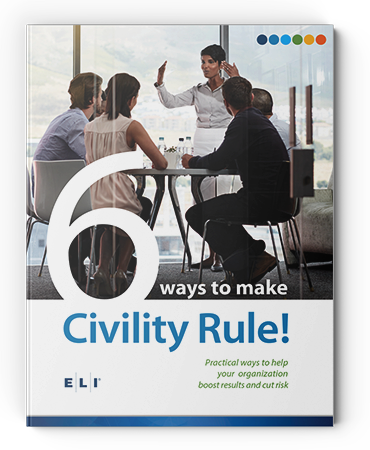If you’re about to finish up an HR investigation, you may feel a sense of relief begin to creep in
After weeks or months of fraught interviews and painstaking detail collection, there’s now an end in sight.
However, as the research phase begins to wrap up, the final and arguably most important phase of the process begins. It’s time for HR staff and organizational leaders to lay the foundation for all employees to move forward and start working well with each other again.
If this final phase isn’t approached thoughtfully, the investigation actually has the potential to do more harm than good.
What happens after a workplace investigation? Here’s how the best employers address issues revealed by internal HR investigation processes so everyone can get back to work smoothly.
Making a Plan to Address the Problem
In most HR investigations, no serious disciplinary actions are called for in the end. It generally takes a lot of solid evidence to lead to something like an immediate termination or demotion, for example.
However, even if bad behavior can’t be officially proven or isn’t deemed an official violation, there are usually still some serious workplace problems that need to be addressed. After all, most employees are hesitant to file an official HR complaint. They typically don’t do so until a problem has started to significantly affect their work or quality of life.
So, it’s safe to assume that if an interpersonal issue has gotten bad enough to get officially reported, it has already seriously affected the productivity of at least one employee — and probably the workplace as a whole.
Explore These Popular Posts from the ELI Blog

75 Years of Creating Commonality
Last month, I spoke at the 75th SHRM conference, which, as always, was energizing and well run. There were more than 23,000 people in attendance, which I think is a record.

Igniting a Continuous Cycle of Learning Through Inclusion
Continuous learning is a critical component of building a successful and inclusive workplace. While monthly awareness campaigns like Pride Month and Juneteenth provide opportunities to
These incidents don’t exist in a vacuum. It’s likely that other employees have had to witness the bad behavior, or have even been on the receiving end of it themselves. That’s why it’s so important for morale to take action on these issues, even if there are no official “punishments” to dole out after the HR investigation.
The best HR pros rely on a deep toolbox of training options and education opportunities to help employees improve. Perhaps your HR investigation found that a manager’s behavior wasn’t technically harassment, but it was rude and unwelcoming, for example. A civility training program designed for leaders could be a good place to start. By taking some kind of action and following up, leaders can show that they’re taking the issue seriously.
Following up With Employees
Once you have a plan, it’s time to communicate that plan (along with the rest of the investigation findings) in a way that satisfies the people involved — without putting the company at risk.
The Complainant
The biggest hurdle with letting the complainant know about the results of an investigation is to do so while maintaining the confidentiality of the offender.
Many employers are so worried about confidentiality and possible defamation lawsuits that they tell the accuser little more than the fact that the issue was resolved.
However, as we wrote in our post Confidentiality Has its Limits, this “traditional” approach focuses on only one risk while ignoring others.
For one, retaliation lawsuits are common and very expensive. If the complainant leaves the meeting feeling like no action was taken or that their issue wasn’t taken seriously, that could very well pave the way for a retaliation claim.
And if their complaints are eventually are taken public, the reputation of the entire organization will suffer.
That’s why we believe it’s well worth it to give the complainant as much information as you can while being fair to the accused employee.
Before your meeting with the accuser, do the following:
- Obtain written acknowledgement that the complainant will keep the matter confidential and not reveal the findings to co-workers or others. The information is only to assure the complainant that an investigation has been conducted and proper action taken. Of course, the complainant may divulge this to his/her counsel, but that is a risk the organization may decide to shoulder. A complainant’s attorney may also be concerned if it appears that no action or insignificant corrective action has occurred.
- Prepare a document with counsel.
- Identify brief, specific, factual findings while avoiding any legal conclusions.
During the meeting, do the following:
- Thank the complainant for raising the issues. Remind them that they were well within their rights to make a complaint. Thank them for doing so and for trusting in the process.
- Encourage the complainant to come forward if there are other instances of misbehavior, and assure the complainant that retaliation will not be tolerated.
After the meeting, periodically check back with the complainant to make sure that the issues have truly been resolved.
Download the 6 Ways to Make Civility Rule eBook and gain insight to help your organization adapt.
The Accused / Offending Employee
When it comes to informing the alleged offender of the investigation findings, you should have two goals:
- Make the employee feel comfortable that they can continue their career at your company (if that’s indeed possible).
- Let the employee know that retaliation of any kind is unacceptable.
If the investigation findings have essentially made a healthy career at the employer impossible, it’s probably advisable to terminate the accused employee. Keeping an employee on board who’ll be treated like a pariah or refused future promotion opportunities isn’t healthy for anyone.
However, if you do indeed want to offer this employee a real chance for redemption, you need to make sure that they have the opportunity to make things right.
Interviewed in this SHRM article, employee relations expert Paul Gibson notes that employees who have come under investigation at work will often leave that employer due to feelings of shame. That loss is of talent can be unnecessary if the slight was “nothing more than modest failure of judgment or even youthful indiscretion.”
Unless employers make a special effort to let offending employees know that the company still supports them, the employee will assume the worst — that they’ve been “blackballed.”
Finally, employers must also make sure that accused employees know what retaliation looks like so that they can avoid it.
In some cases, even well-intentioned actions (such as trying to “give the accuser space” or rescheduling the accuser to get away from the offending employee) can be perceived as retaliation.
For more on how to handle retaliation claims, read our full article on the topic: What to Do When an Employee Makes a Retaliation Claim.
Witnesses
Employees who were interviewed as part of the investigation may not have as much as stake as the accusers and the accused.
However, they’re certainly capable of spreading rumors and gossip. The sense of uncertainty surrounding the investigation may also begin to affect their work or their attitude toward their coworkers.
That’s why you should consider following up with witnesses, too. Thank them again for their participation, and let them know the issues has been resolved. If it seems necessary, you can give a few insights into what happened, but not before checking with your legal counsel. At least acknowledge the issues that were raised by the investigation and how they impact the workplace.
Finding The Right Path
There are few hard-and-fast rules about how to wrap up an HR investigation in a way that encourages a smooth transition back to work.
The right path may depend on the nature of the offense, the culture of your organization, and the individuals involved. Each organization must weigh the advice of leaders, compliance representatives, and lawyers both on staff and outside the organization to find the best approach.
The best conclusion to an HR investigation will balance the advice of leaders, compliance representatives, and legal counsel.
If you’re looking for a partner who can help your organization work through all of these issues, we’re ready to help.
ELI’s expert team has deep legal knowledge and years of experience managing employment issues. We can help you develop a workplace culture that values clear, respectful communication. In this environment, employee conflicts get resolved early on and peacefully, saving your organization untold hours and expense.
Explore These Popular Posts from the ELI Blog

75 Years of Creating Commonality
Last month, I spoke at the 75th SHRM conference, which, as always, was energizing and well run. There were more than 23,000 people in attendance, which I think is a record.

Igniting a Continuous Cycle of Learning Through Inclusion
Continuous learning is a critical component of building a successful and inclusive workplace. While monthly awareness campaigns like Pride Month and Juneteenth provide opportunities to



I need some advise for someone at work accused me to HR for something posted on social media. Thanks
Thank you so much for this blog. It couldn’t have come at a better time–I’m starting to explore a transition from content marketing to HR.
When complaints are filed against an employee and the investigation is completed by HR does the accused have a right to know what the findings were in the investigation???? Not names associated with comments. Just general findings?
I think my store manager lied about an investigation was being done. Over a month and no word, no written statements from witnesses or parties involved. Was told not to discuss what happened with anyone and that I may not ever be contacted about what happened. He also forced the other person to apologize after 2 weeks of incident. Sounds like a swept under the rug incident.
This sound like the same thing that happen to my friend someone accused his of stealing from work and they found nothing. At first it was that it were discrepancies in the money while the whole time everything that was needed to be seen was right in front of their faces. They called him back to work while the investigation was still going on.
I recently resigned from my last job, due to the lack of respect from a coworker/officer of the company.
This coworker decided, it was okay to humiliate my superintendent and myself via email and cc’d people from another company.
I replied to all addressing the issue and questioned him of why he thought it was okay to cc people from other companies. When the matter was an internal matter.
This coworker/ Officer has a long history of denigrating his coworkers, there was a few incidents that happened prior to this one.
Which one incident hhad been reported to the VP before and I was told he had been talked to.
I finally decided to report this to the owner of the company, just like the handbook suggest employees do. I requested a meeting to resolve or work out any issues we may be having. The CEO replied and said he agreed a meeting needed to take place.
The VP sent a group text asking for the availability of all parties involved so we could schedule a meeting.
The Coworker/ Officer of the company responded “ I will not be meeting with anyone, find someone that can make you 50 million dollars”
Few days went by, this incident was in its way to being swept under the rug.
I realized that my complaint wasn’t going anywhere, that my discussions with my boss weren’t going to be taken seriously, I couldn’t take this to HR because there was no HR. I felt as if there was no other recourse and my only solution was to resign.
Although I’m now unemployed I feel like I did the right thing, I stood my ground and walked away from a place that didn’t care about how I was feeling. I don’t regret it one bit.
If your HR department has already completed a investigation for alleged allegations against you and during this investigation all of these allegations were found inclusive and you were not guilty; then a few months later you are place on Leave pending safety allegation and come to find out its the same allegations that you already investigated for would this be considered work retaliation?
I was in an hostile environment and my manager and members of my team excluded me in every thing. At the end of the year my manager gave me a horrible review, so I fought back and I reported my case to HR. Unfortunately, HR did not see any wrongdoing even with solid evidence. Luckily for me I was able to transfer to another team within the company. My old manager reached out to the new one to discourage him not to hire me. Should I remain in the company or leave?
Well, you were right in implying that credible proof is needed to justify an employee’s dismissal from an organization following an HR investigation. One of my colleagues is suspected of falsifying his work assignment last week and my boss wants me to take a look at the matter. Personally, I believe it would be better if a third party is hired to examine the issue.
The best employers address issues revealed by internal HR investigations by taking swift and appropriate action to rectify the situation. They communicate openly and transparently with employees, ensuring that they understand the steps being taken to address the issue and prevent it from happening again. They also provide support and resources to employees who may have been affected by the situation, and work to rebuild trust and morale within the workplace.